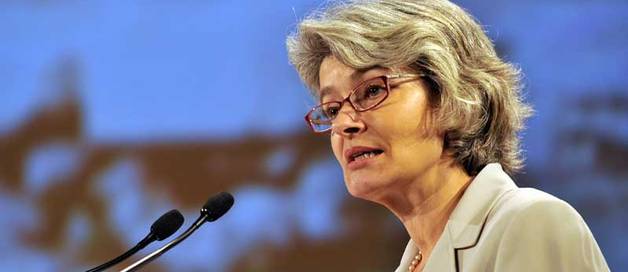Message by Irina Bokova, Director General of UNESCO
Message by Irina Bokova, Director General of UNESCO, on the occasion of the International Day for Biological Diversity 2017
For more than 70 years, UNESCO has been working to foster scientific knowledge and cooperation on biodiversity and ecosystems, such as tropical forests, oceans, mountains. In recent years, the effect of human activities -- magnified by population growth and global climate change -- has reduced deeply biodiversity in ecosystems around the world. We need to join forces and find new ways to protect and promote biodiversity as our shared heritage, and a condition for a sustainable future for all.
Sustainable tourism is a powerful tool to raise awareness on biodiversity and to protect it for present and future generations. This is the spirit of the Cancun Declaration, adopted at the Thirteenth meeting of the Conference of the Parties to the Convention on Biological Diversity held in Mexico in 2016, which states: “there are pathways for ensuring the long-term sustainability of tourism while also ensuring that it contributes positively to biodiversity”.
UNESCO works with all its partners to explore these pathways. We have supported ecotourism guide training for young people in Mata Atlântica Biosphere Reserve in Brazil.
In Belarus, nature-based tourism programmes have been tailored for such activities as bird watching and canoeing, in co-operation with Vosges du Nord Biosphere Reserve in France. The preservation of biodiversity is vital for human lives and ecosystems – it is also a source of green growth and decent jobs. UNESCO’s Man and the Biosphere Programme, like the “Biosphere Destinations” initiative, brings green destinations, certificates and certified tourism together, showing also an employment growth rate of almost 70% in Portugal.
Through the World Heritage Sustainable Tourism Programme, UNESCO also works to strengthen policies and frameworks that support sustainable tourism to improve natural heritage management. Recently, a number of capacity-building workshops were led in four priority natural World Heritage sites in Lesotho, Malawi, South Africa, United Republic of Tanzania, Zambia and Zimbabwe.
Biodiversity is life. It is also a key condition for resilient ecosystems, able to adapt to a changing environment and unexpected challenges. Biodiversity is as necessary for nature and humankind as cultural diversity, to build stronger, more resilient societies, equipped with the tools they need to respond to the challenges of today and tomorrow. We need to foster this culture of diversity in all its forms as a chance and a strength for all. I see this as a key condition to achieve the sustainable development goals of the United Nations 2030 Agenda.
